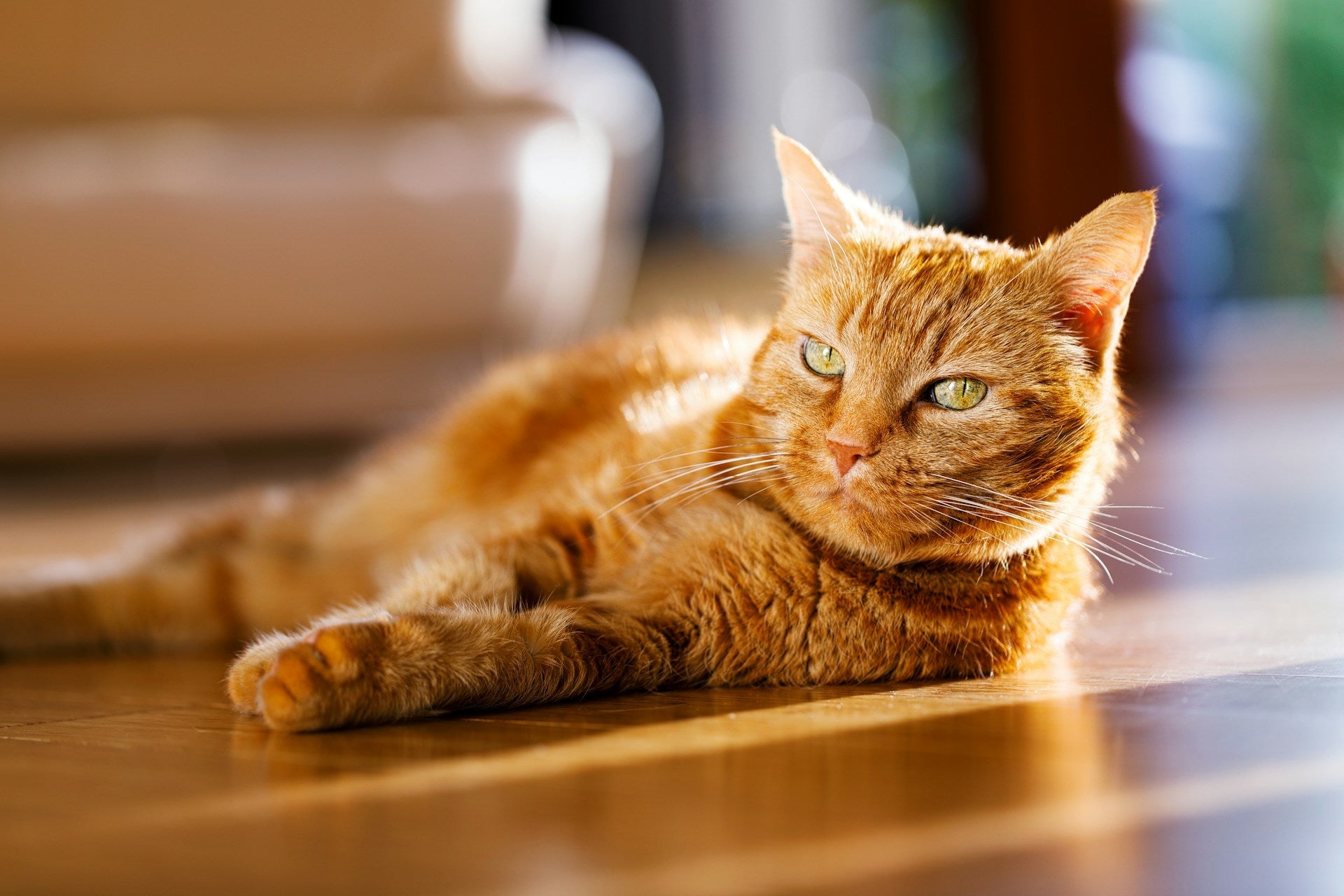If you're a fan of CocoTherapy, you'll know that virgin coconut oil and MCT oil are healthy, highly beneficial additions to your pet's diet. But did you know that ghee is also a great choice for our furry friends? This rich, creamy ingredient has been a staple in Ayurvedic medicine for centuries and now, it’s making its way into pet bowls.
In this article, we'll explore why ghee is becoming popular among pet parents looking for natural and wholesome options. Packed with essential nutrients like vitamins A, D, E, and K, along with healthy fats, ghee can help nourish your pet's skin, improve digestion, and boost their immune system. Plus, the butyric acid in ghee acts as an anti-inflammatory, which can help pets with arthritis feel better. Ready to dive into the details? Then let's get started!

What is Ghee?
Ghee is a type of clarified butter that originates from India and is a key component in Ayurvedic medicine. It’s made by simmering butter to separate the milk solids and water, leaving behind pure butterfat.
This not only enhances its flavor but also increases its shelf life and stability at high cooking temperatures. Ghee is loaded with fat-soluble vitamins and healthy fats, making it a nutritional powerhouse for both people and pets.
What's the Difference Between Ghee and Butter?
While ghee and butter both come from cow's milk, the process of making ghee sets it apart. Here's the lowdown on the key differences between these two dairy products:
- Water content. Butter has about 16-20% water, which gives it a creamy texture and makes it less stable at high temperatures. Ghee, on the other hand, is almost entirely fat with less than 1% water. This makes ghee more stable and suitable for high heat cooking without breaking down.
- Milk solids. In butter, milk solids remain, contributing to its rich, creamy texture. Ghee is clarified, meaning the milk solids are removed during the simmering process. This makes ghee lactose and casein-free, making it a better choice for those with dairy sensitivities.
- Smoke point. Butter has a lower smoke point (about 350°F or 177°C), meaning it can burn easily when used for high heat cooking like frying. Ghee has a much higher smoke point (around 485°F or 252°C), making it ideal for frying, sautéing, and other high-temperature cooking methods without producing harmful compounds. In other words, ghee can take the heat and stay in the kitchen!
- Flavor. Butter has a mild, creamy taste that’s great for spreading and baking. Ghee has a richer, nuttier flavor due to the caramelization of the milk solids during the clarification process. This deeper flavor can enhance a variety of dishes, both sweet and savory.
What's in Ghee?
Ghee is primarily composed of saturated fats, but it also includes monounsaturated and polyunsaturated fats. Here's a quick breakdown:
- Saturated fats. Around 62%. These fats are stable at high temperatures, making ghee an excellent cooking fat. They provide a dense source of energy and are important for various bodily functions.
- Monounsaturated fats (MUFA). About 29%. These heart-healthy fats can help reduce bad cholesterol levels and are beneficial for cardiovascular health. They are also known for their anti-inflammatory properties.
- Polyunsaturated fats (PUFA). Around 4%. This category includes omega-3 and omega-6 fatty acids, which are essential for brain function, cell growth, and regulating metabolism. These fats must be obtained through diet as the body cannot produce them. Ghee is like the multitool of fats, offering a little bit of everything.
What Are the Health Benefits of Ghee?
Ghee offers numerous health benefits for both people and pets, making it a valuable addition to any diet. Let's take a look at some of the top benefits:
High Concentration of Healthy Fats
Ghee contains healthy fats, including saturated fats, which provide a stable source of energy. These fats aid in the absorption of fat-soluble vitamins, ensuring that both people and their pets receive the necessary nutrients for optimal health and vitality. Healthy fats also maintain the integrity of cell membranes and support brain function.
Rich in Essential Vitamins and Minerals
Ghee is packed with fat-soluble vitamins A, D, E, and K. Vitamin A is crucial for maintaining good vision, immune function, and skin health. Vitamin D helps with calcium absorption, promoting healthy bones and teeth.
Vitamin E acts as a powerful antioxidant, protecting cells from damage and supporting overall health, while Vitamin K is vital for blood clotting and bone metabolism.
Supports Gut Health
Ghee stimulates the secretion of gastric acid, which helps in digestion. The butyric acid in ghee promotes the production of healthy bacteria in the intestines, aiding in better digestion and nutrient absorption. This is particularly beneficial for those with gastrointestinal issues or inflammatory conditions.
By improving gut health, ghee can enhance overall digestive function and nutrient absorption. So, if your pet has a sensitive tummy, ghee might just be their new best friend!
Promotes Skin Health
When used topically, ghee can moisturize and nourish the skin, providing relief from dryness and irritation. Applying ghee directly to dry or chapped skin restores moisture, aids healing, and protects against environmental factors. It can also soothe conditions like eczema and psoriasis, reducing inflammation and itchiness.
Pets can benefit from the topical application of ghee as well. It alleviates dry skin and hot spots on dogs and cats, providing quick relief from itching and preventing further aggravation. Ghee's antimicrobial properties help treat minor wounds and scratches, promoting faster healing and improved skin health.
Anti-inflammatory Properties
Ghee contains butyrate, a short-chain fatty acid that has been shown to reduce inflammation. This can be particularly beneficial for humans and animals suffering from arthritis or other inflammatory conditions, as it helps to alleviate pain and improve joint health.
Lactose and Casein-Free
Since ghee is clarified and free of milk solids, it’s suitable for people and pets with lactose intolerance or dairy allergies. Since lactose intolerance is especially common in pets, ghee can provide a safe and beneficial source of healthy fats for them.
High Smoke Point
With a high smoke point, ghee is ideal for cooking at high temperatures without breaking down into harmful compounds. This makes it a safer and healthier option for preparing food for you and your furry friends.
Source of Conjugated Linoleic Acid (CLA)
Ghee is a great source of Conjugated Linoleic Acid (CLA), found in grass-fed dairy and meat. CLA may help reduce body fat and support weight loss, making it easier for both you and your pets to maintain a healthy weight. It can also improve heart health by lowering bad cholesterol and preventing plaque buildup.
8 Ways to Use Ghee for You and Your Pets
Ready to enjoy the rich taste and health benefits of ghee? Here are some fun and simple ways to use it for you and your pets:
- Cooking. Use ghee as a cooking oil for frying, sautéing, or roasting. Its high smoke point makes it ideal for these high-temperature methods without breaking down into harmful compounds. Plus, it adds a rich, nutty flavor that both you and your pet will love.
- Baking. Substitute ghee for butter or oil in baking recipes to add a richer flavor and healthier fats. Whether you’re making homemade treats for yourself or your pet, ghee can be a great addition. It's like a flavor upgrade for everyone’s favorite snacks.
- Spreading. Use ghee as a spread on bread, toast, or pancakes for a tasty treat. For your pet, it can be mixed with their food to make meals more palatable and nutritious.
- Flavor enhancer. Add a spoonful of ghee to cooked vegetables, rice, or pasta to boost the flavor and nutritional content. For pets, try adding a small amount as a meal topper to make their food more enticing and nutritious.
- Drizzling. Drizzle ghee over popcorn, steamed vegetables, or grilled meats to add richness and a nutty flavor. For pets, you can drizzle a tiny bit over their kibble or wet food to enhance the taste.
- Traditional dishes. Ghee is perfect in many Indian dishes such as curries, dals, and biryanis. Its rich flavor can enhance a variety of meals and add a unique touch to your cooking.
- Ayurvedic uses. Use ghee in herbal preparations and for therapeutic purposes in Ayurvedic medicine. Ghee can be combined with herbs and supplements to create natural remedies for various health conditions.
- Topical application. Apply ghee topically to moisturize and nourish your skin and your pet’s skin. It can provide relief from dryness and irritation, promoting healthy skin and a shiny coat. Your pet will love the extra pampering, and you’ll enjoy the benefits of soft, hydrated skin.
By incorporating ghee into both your and your pet’s diet and daily routine, you can enjoy its numerous health benefits and unique flavor profile. Whether cooking at high temperatures, baking, or adding a rich, nutty taste to your meals, ghee is a versatile and healthy fat choice for the whole family.
Are You Ready to Give Ghee a Try?
So, there you have it – the many benefits of ghee for both you and your pets. It’s a delicious and nutritious addition to any diet that can help support overall health and wellbeing.
Stay tuned for our upcoming blog post, where we'll introduce a brand new product from CocoTherapy, Coco-Ghee, a new highly nutritious fat macronutrient made with two super fats! We’re excited to share this all-natural, delicious product with you and your furry family members. Ghee-lieve us, you and your pets will love it!



